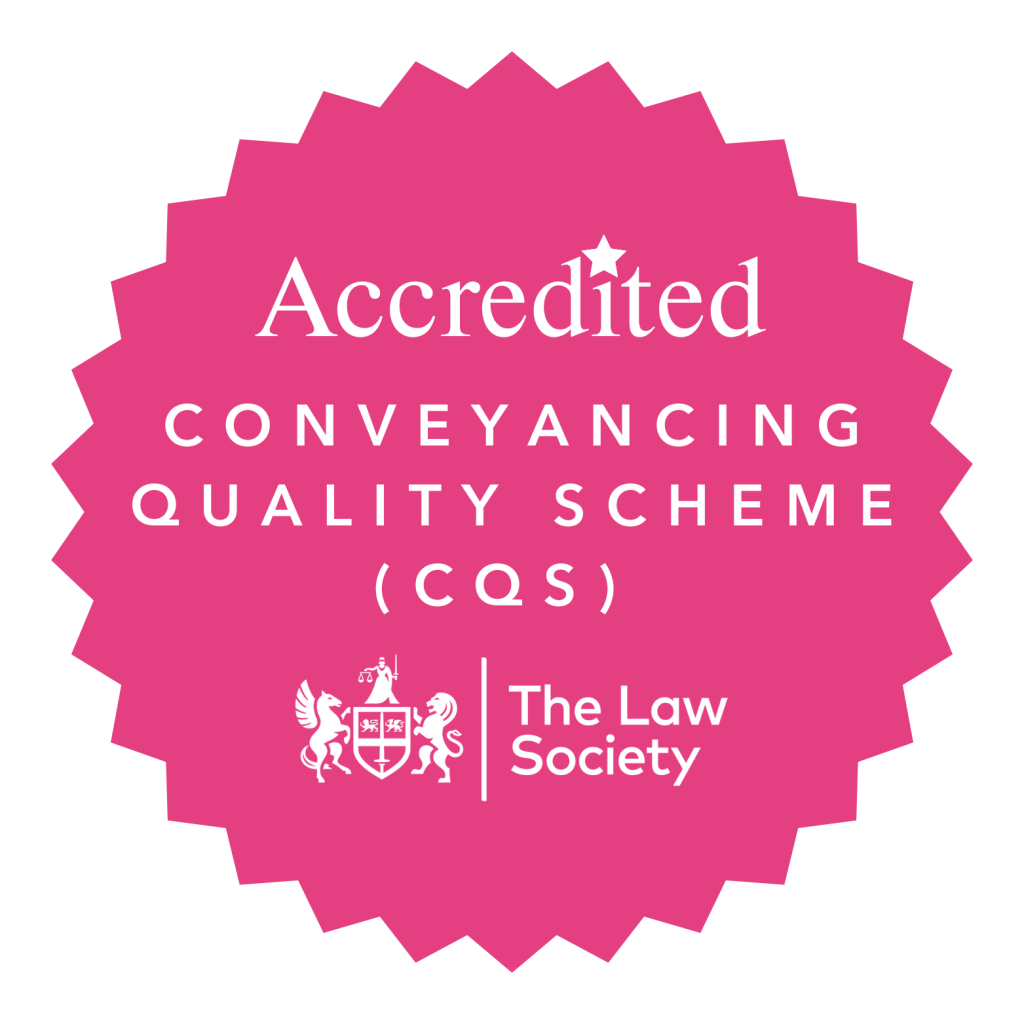Superior service and solutions

A ban on evictions, first introduced in March to protect businesses suffering due to Covid-19, has been extended until the end of the year, it was announced last month.
The commercial rent protection period, intended to give ailing businesses breathing space to recover from losses incurred during lockdown and beyond, means that landlords are barred from evicting their tenants if they cannot pay their rent due to the coronavirus pandemic.
The moratorium on commercial landlord sanctions was initially due to end on 30th June 2020, but was extended for a further three months to September. On 16th September, the Government extended the moratorium again, until the end of 2020. The new statutory instrument came into force on 29th September 2020.
Robert Jenrick, Secretary of State for Housing, Communities and Local Government, said of the extension: “We are extending support to protect those businesses that are unable to pay their rent from eviction to the end of the year. This will stop businesses going under and protect jobs over the coming months.”
What does the moratorium extension mean for landlords?
The extension prevents commercial landlords from forfeiting commercial leases due to rent arrears until the end of 2020. Many landlords worry that this could allow unscrupulous tenants to take advantage of the rent protection period by withholding rent that they are capable of paying. To prevent this, landlords and tenants alike are encouraged to abide by a voluntary Code of Practice for commercial property relationships that was set up in June.
CRAR (Commercial Rent Arrears Recovery)
Under CRAR, landlords can recover rent arrears by repossessing and selling off the tenant’s goods. But the number of days of unpaid rent required to be eligible for CRAR has increased to 276 (if notice is served from now until 24 December 2020), or 366 (if notice is served on or after 25 December 2020). If you meet these criteria, you can take action under the CRAR statutory procedure.
Although landlords cannot currently evict tenants for non-payment of rent unless they meet CRAR stipulations, it’s important to note that rent is still due during the moratorium, and when the rent protection period ends, tenants will be liable for the full amount.
Other ways to repossess commercial property
The Moratorium only prevents evictions due to the failure to pay rent. If tenants are breaching their commercial leases in other ways, a landlord can give notice under Section 146 of the Law of Property Act 1925 which allows the tenant a reasonable time to correct the breach before further action can be taken. In practice this may prove difficult to enforce – and a ‘reasonable’ period of time may be longer than usual due to the pandemic.
Get legal advice from commercial property experts
Our commercial property solicitors offer legal advice with all aspects of commercial property law. We can help landlords by advising on any legal issues arising from the moratorium extension.
For more information, contact us on 01727 858807.
















บาคาร่าเกาหลี
November 23, 2024... [Trackback] [...] Information on that Topic: labrums.co.uk/blog/government-extends-the-ban-on-commercial-landlord-sanctions [...]
thailand tattoo
November 29, 2024... [Trackback] [...] There you will find 32557 additional Info to that Topic: labrums.co.uk/blog/government-extends-the-ban-on-commercial-landlord-sanctions [...]
หวยดัง หวยอั้น มีที่มาจากไหน
December 2, 2024... [Trackback] [...] Find More on that Topic: labrums.co.uk/blog/government-extends-the-ban-on-commercial-landlord-sanctions [...]
tga168
December 12, 2024... [Trackback] [...] Find More on on that Topic: labrums.co.uk/blog/government-extends-the-ban-on-commercial-landlord-sanctions [...]
JZ-500
December 14, 2024... [Trackback] [...] Find More here to that Topic: labrums.co.uk/blog/government-extends-the-ban-on-commercial-landlord-sanctions [...]
disposable thc vape carts near me
December 17, 2024... [Trackback] [...] Info on that Topic: labrums.co.uk/blog/government-extends-the-ban-on-commercial-landlord-sanctions [...]
dultogel
December 29, 2024... [Trackback] [...] Read More on that Topic: labrums.co.uk/blog/government-extends-the-ban-on-commercial-landlord-sanctions [...]
หวยสด
January 11, 2025... [Trackback] [...] Here you can find 51472 more Info to that Topic: labrums.co.uk/blog/government-extends-the-ban-on-commercial-landlord-sanctions [...]
รับนำเข้าสินค้าจากจีน
January 12, 2025... [Trackback] [...] Read More to that Topic: labrums.co.uk/blog/government-extends-the-ban-on-commercial-landlord-sanctions [...]
dime carts review
January 13, 2025... [Trackback] [...] Read More on that Topic: labrums.co.uk/blog/government-extends-the-ban-on-commercial-landlord-sanctions [...]
Bauc ET
January 23, 2025... [Trackback] [...] There you will find 92597 more Information on that Topic: labrums.co.uk/blog/government-extends-the-ban-on-commercial-landlord-sanctions [...]
พิมพ์การ์ดงานแต่ง
January 28, 2025... [Trackback] [...] Here you can find 39408 additional Info on that Topic: labrums.co.uk/blog/government-extends-the-ban-on-commercial-landlord-sanctions [...]
pakong188
January 30, 2025... [Trackback] [...] Info to that Topic: labrums.co.uk/blog/government-extends-the-ban-on-commercial-landlord-sanctions [...]
highbay
January 31, 2025... [Trackback] [...] There you can find 77515 additional Information to that Topic: labrums.co.uk/blog/government-extends-the-ban-on-commercial-landlord-sanctions [...]
couples massage
February 26, 2025... [Trackback] [...] Read More to that Topic: labrums.co.uk/blog/government-extends-the-ban-on-commercial-landlord-sanctions [...]
จองตั๋วรถทัวร์
February 28, 2025... [Trackback] [...] Read More here to that Topic: labrums.co.uk/blog/government-extends-the-ban-on-commercial-landlord-sanctions [...]
kc9
March 3, 2025... [Trackback] [...] There you can find 43330 more Information on that Topic: labrums.co.uk/blog/government-extends-the-ban-on-commercial-landlord-sanctions [...]
สล็อตวอเลทเติมวอผ่านอั่งเปา
March 6, 2025... [Trackback] [...] Read More on that Topic: labrums.co.uk/blog/government-extends-the-ban-on-commercial-landlord-sanctions [...]
pgslot168
March 7, 2025... [Trackback] [...] Info on that Topic: labrums.co.uk/blog/government-extends-the-ban-on-commercial-landlord-sanctions [...]
nagatop situs scam
March 12, 2025... [Trackback] [...] Here you will find 6474 more Info to that Topic: labrums.co.uk/blog/government-extends-the-ban-on-commercial-landlord-sanctions [...]
เติมเกม
March 16, 2025... [Trackback] [...] Find More here to that Topic: labrums.co.uk/blog/government-extends-the-ban-on-commercial-landlord-sanctions [...]
เอเจนซี่ศัลยกรรมจีน
March 17, 2025... [Trackback] [...] Find More on to that Topic: labrums.co.uk/blog/government-extends-the-ban-on-commercial-landlord-sanctions [...]
Ricky Casino
March 19, 2025... [Trackback] [...] Find More to that Topic: labrums.co.uk/blog/government-extends-the-ban-on-commercial-landlord-sanctions [...]
slot gacor maxwin
March 22, 2025... [Trackback] [...] Info on that Topic: labrums.co.uk/blog/government-extends-the-ban-on-commercial-landlord-sanctions [...]
สล็อตออนไลน์เกาหลี
March 23, 2025... [Trackback] [...] Find More on that Topic: labrums.co.uk/blog/government-extends-the-ban-on-commercial-landlord-sanctions [...]
isotonix.dhenterprise.com
March 28, 2025... [Trackback] [...] There you can find 86988 additional Info on that Topic: labrums.co.uk/blog/government-extends-the-ban-on-commercial-landlord-sanctions [...]
เพิ่มยอดวิว
March 30, 2025... [Trackback] [...] Read More on on that Topic: labrums.co.uk/blog/government-extends-the-ban-on-commercial-landlord-sanctions [...]
สล็อตวอเลท
April 17, 2025... [Trackback] [...] There you will find 26771 more Info on that Topic: labrums.co.uk/blog/government-extends-the-ban-on-commercial-landlord-sanctions [...]
ผู้ผลิต โบลเวอร์
April 18, 2025... [Trackback] [...] Read More here to that Topic: labrums.co.uk/blog/government-extends-the-ban-on-commercial-landlord-sanctions [...]
sherbinski infused prerolls
April 20, 2025... [Trackback] [...] There you can find 30308 more Information to that Topic: labrums.co.uk/blog/government-extends-the-ban-on-commercial-landlord-sanctions [...]
ปั่นสล็อต
April 20, 2025... [Trackback] [...] Find More on that Topic: labrums.co.uk/blog/government-extends-the-ban-on-commercial-landlord-sanctions [...]
พิมพ์โปสการ์ด
May 6, 2025... [Trackback] [...] Read More to that Topic: labrums.co.uk/blog/government-extends-the-ban-on-commercial-landlord-sanctions [...]
official developer of Dragon Tiger game
May 9, 2025... [Trackback] [...] Find More Information here on that Topic: labrums.co.uk/blog/government-extends-the-ban-on-commercial-landlord-sanctions [...]
web site
May 9, 2025... [Trackback] [...] Read More Info here to that Topic: labrums.co.uk/blog/government-extends-the-ban-on-commercial-landlord-sanctions [...]
หวยลาว
May 13, 2025... [Trackback] [...] Find More here to that Topic: labrums.co.uk/blog/government-extends-the-ban-on-commercial-landlord-sanctions [...]
สั่งของจากจีน
May 17, 2025... [Trackback] [...] There you will find 22098 additional Information on that Topic: labrums.co.uk/blog/government-extends-the-ban-on-commercial-landlord-sanctions [...]
ทดลองเล่นสล็อต PG168
May 21, 2025... [Trackback] [...] Find More on to that Topic: labrums.co.uk/blog/government-extends-the-ban-on-commercial-landlord-sanctions [...]
film
May 23, 2025... [Trackback] [...] Info on that Topic: labrums.co.uk/blog/government-extends-the-ban-on-commercial-landlord-sanctions [...]
ทางเข้า lsm99
May 26, 2025... [Trackback] [...] Read More Info here to that Topic: labrums.co.uk/blog/government-extends-the-ban-on-commercial-landlord-sanctions [...]
พลาสติกปูพื้นก่อนเทคอนกรีต
May 29, 2025... [Trackback] [...] Read More on that Topic: labrums.co.uk/blog/government-extends-the-ban-on-commercial-landlord-sanctions [...]
altogel
May 30, 2025... [Trackback] [...] Info to that Topic: labrums.co.uk/blog/government-extends-the-ban-on-commercial-landlord-sanctions [...]
pg168
June 1, 2025... [Trackback] [...] Here you can find 58998 more Info to that Topic: labrums.co.uk/blog/government-extends-the-ban-on-commercial-landlord-sanctions [...]
whatsapp网页版
June 11, 2025... [Trackback] [...] Read More Information here to that Topic: labrums.co.uk/blog/government-extends-the-ban-on-commercial-landlord-sanctions [...]
Comprar carta de condução
June 12, 2025... [Trackback] [...] Information to that Topic: labrums.co.uk/blog/government-extends-the-ban-on-commercial-landlord-sanctions [...]
สล็อตเว็บตรง lsm99
June 15, 2025... [Trackback] [...] Here you can find 82047 additional Information on that Topic: labrums.co.uk/blog/government-extends-the-ban-on-commercial-landlord-sanctions [...]
ติดต่อโรงงานจีน
June 16, 2025... [Trackback] [...] Info to that Topic: labrums.co.uk/blog/government-extends-the-ban-on-commercial-landlord-sanctions [...]
เหยี่ยวไล่นก
June 22, 2025... [Trackback] [...] Read More to that Topic: labrums.co.uk/blog/government-extends-the-ban-on-commercial-landlord-sanctions [...]
perfumes for women
June 24, 2025... [Trackback] [...] Read More Information here on that Topic: labrums.co.uk/blog/government-extends-the-ban-on-commercial-landlord-sanctions [...]
Ozempic vs Wegovy
June 26, 2025... [Trackback] [...] Read More here on that Topic: labrums.co.uk/blog/government-extends-the-ban-on-commercial-landlord-sanctions [...]
บทความ lsm99
June 26, 2025... [Trackback] [...] Find More here on that Topic: labrums.co.uk/blog/government-extends-the-ban-on-commercial-landlord-sanctions [...]
ระบบขายของออนไลน์
June 27, 2025... [Trackback] [...] Info on that Topic: labrums.co.uk/blog/government-extends-the-ban-on-commercial-landlord-sanctions [...]
ssd for gaming hyderabad
June 28, 2025... [Trackback] [...] Find More Info here to that Topic: labrums.co.uk/blog/government-extends-the-ban-on-commercial-landlord-sanctions [...]
เกียรติบัตร
July 30, 2025... [Trackback] [...] Information on that Topic: labrums.co.uk/blog/government-extends-the-ban-on-commercial-landlord-sanctions [...]
ขายเหล็ก
August 1, 2025... [Trackback] [...] Find More Information here on that Topic: labrums.co.uk/blog/government-extends-the-ban-on-commercial-landlord-sanctions [...]
เช็คสลิปโอนเงิน
August 1, 2025... [Trackback] [...] Read More to that Topic: labrums.co.uk/blog/government-extends-the-ban-on-commercial-landlord-sanctions [...]
mk8
August 30, 2025... [Trackback] [...] Find More to that Topic: labrums.co.uk/blog/government-extends-the-ban-on-commercial-landlord-sanctions [...]
เน็ต บ้าน ais
September 3, 2025... [Trackback] [...] Here you can find 67484 additional Information to that Topic: labrums.co.uk/blog/government-extends-the-ban-on-commercial-landlord-sanctions [...]
โบลเวอร์ kruger
September 17, 2025... [Trackback] [...] There you can find 89253 more Information on that Topic: labrums.co.uk/blog/government-extends-the-ban-on-commercial-landlord-sanctions [...]
Corporate event planner
September 19, 2025... [Trackback] [...] Read More Info here on that Topic: labrums.co.uk/blog/government-extends-the-ban-on-commercial-landlord-sanctions [...]
หาแม่บ้าน
September 23, 2025... [Trackback] [...] Find More Info here on that Topic: labrums.co.uk/blog/government-extends-the-ban-on-commercial-landlord-sanctions [...]
ktvvip
September 26, 2025... [Trackback] [...] Find More on that Topic: labrums.co.uk/blog/government-extends-the-ban-on-commercial-landlord-sanctions [...]
สิว
September 30, 2025... [Trackback] [...] Read More Info here to that Topic: labrums.co.uk/blog/government-extends-the-ban-on-commercial-landlord-sanctions [...]
Skrota bilen
October 2, 2025... [Trackback] [...] Read More Info here to that Topic: labrums.co.uk/blog/government-extends-the-ban-on-commercial-landlord-sanctions [...]
נרתיק חיצוני לאקדח גלוק 43X
October 5, 2025... [Trackback] [...] Info on that Topic: labrums.co.uk/blog/government-extends-the-ban-on-commercial-landlord-sanctions [...]
พรมรถยนต์
October 10, 2025... [Trackback] [...] Find More on to that Topic: labrums.co.uk/blog/government-extends-the-ban-on-commercial-landlord-sanctions [...]
sexy168
November 14, 2025... [Trackback] [...] Information to that Topic: labrums.co.uk/blog/government-extends-the-ban-on-commercial-landlord-sanctions [...]
ปั้มไลค์
December 1, 2025... [Trackback] [...] Here you can find 97722 more Information to that Topic: labrums.co.uk/blog/government-extends-the-ban-on-commercial-landlord-sanctions [...]
เครื่องเป่าแอลกอฮอล์
December 5, 2025... [Trackback] [...] Read More to that Topic: labrums.co.uk/blog/government-extends-the-ban-on-commercial-landlord-sanctions [...]
азино777 отзывы реальные
December 17, 2025... [Trackback] [...] There you can find 33481 additional Information to that Topic: labrums.co.uk/blog/government-extends-the-ban-on-commercial-landlord-sanctions [...]
เน็ตบ้าน ais
December 18, 2025... [Trackback] [...] Read More Info here on that Topic: labrums.co.uk/blog/government-extends-the-ban-on-commercial-landlord-sanctions [...]
SA GAMING
December 21, 2025... [Trackback] [...] Read More Information here to that Topic: labrums.co.uk/blog/government-extends-the-ban-on-commercial-landlord-sanctions [...]
ทำฟัน กระบี่
December 28, 2025... [Trackback] [...] Find More here on that Topic: labrums.co.uk/blog/government-extends-the-ban-on-commercial-landlord-sanctions [...]
เว็บตรงฝากถอนง่าย
December 28, 2025... [Trackback] [...] Info on that Topic: labrums.co.uk/blog/government-extends-the-ban-on-commercial-landlord-sanctions [...]
Outing trip
January 10, 2026... [Trackback] [...] Read More Info here on that Topic: labrums.co.uk/blog/government-extends-the-ban-on-commercial-landlord-sanctions [...]
รับงานเอง
January 11, 2026... [Trackback] [...] Read More on that Topic: labrums.co.uk/blog/government-extends-the-ban-on-commercial-landlord-sanctions [...]
รับทำหลังคาไวนิว
January 23, 2026... [Trackback] [...] Read More on that Topic: labrums.co.uk/blog/government-extends-the-ban-on-commercial-landlord-sanctions [...]
หาแม่บ้าน
Less than a minute ago... [Trackback] [...] Read More Info here to that Topic: labrums.co.uk/blog/government-extends-the-ban-on-commercial-landlord-sanctions [...]